10. Quo Vadis, Aida?
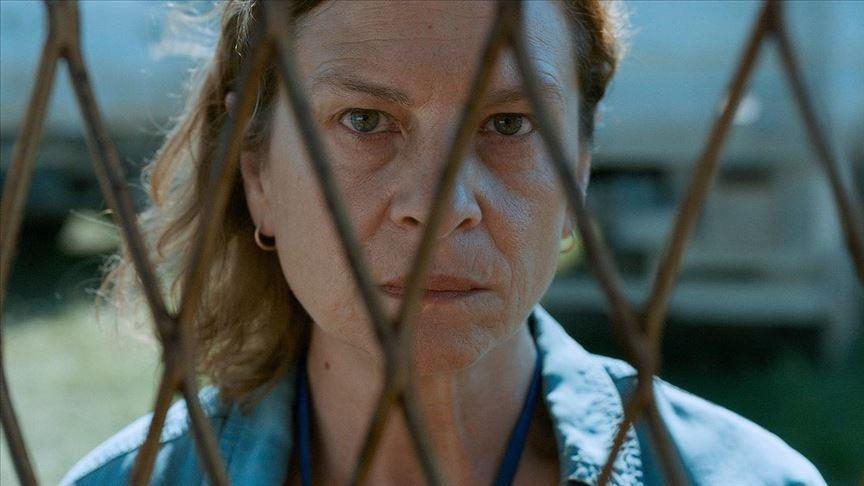
In July of 1995, more than 8,000 Bosniak Muslim men were murdered under the command of Ratko Mladić. Nearly a decade later, after considerable discourse, the International Criminal Tribunal for the former Yugoslavia classified this event as genocide. It is widely regarded as one of the worst mass killings on European soil.
Roughly twenty-five years later, Jasmila Žbanić decided to bring this event to the screen with Quo Vadis, Aida? Specifically, she focuses on one family’s response to the events that preceded the massacre.
Jasna Đuričić plays Aida, a UN translator who spends the duration of the film trying to keep her family safe. Over the course of 102 minutes, viewers watch as the dedicated mother scrambles to do everything she possibly can for the people she loves. It’s gut-wrenching, but it’s also one of the most engrossing cinematic experiences of the year.
Žbanić’s choice to focus on something more personal ultimately works out in her favor. Historical films have a tendency to play out like Wikipedia entries, so it’s refreshing to see something that puts the human elements front and center. Individual moments can feel excruciating, but as a cohesive whole, Quo Vadis, Aida? is extraordinary.
9. Dune
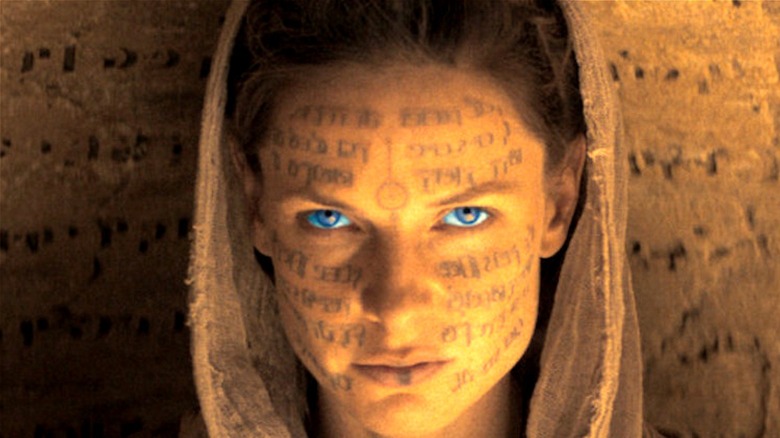
Frank Herbert’s sprawling sci-fi epic has largely been considered unfilmable since its release in 1965. Throughout the 20th century, several high-profile directors attempted to capture the scale of Herbet’s novel, but these adaptations are generally considered failures. In February of 2017, it was announced that Denis Villeneuve was on board to direct his own version of Dune, and honestly, it was hard not to get a little giddy.
Still, history was not on Villeneuve’s side. People have always believed that Dune wasn’t meant for the big screen, so why would this be any different? Well, beyond the fact that the director has proven himself as an insanely talented director, he also wisely decided to split the movie into two parts.
The newest iteration of Dune covers roughly two-thirds of the first novel, and even though it fails to cover everything, it’s significantly more cohesive than Lynch’s ho-hum adaptation. Generally speaking, it tells the same story as Herbert’s novel. It’s just presented in a different medium.
Sticking to the source material can only do so much for an adaptation. It’s great to see an important story brought to life, but there needs to be something special about it. Villeneuve doesn’t just take Herbert’s words and throw them onto the screen. His knack for worldbuilding brings things to life in interesting ways. Not only is the sandy world of Arrakis beautiful to look at, it’s also filled with multiple moving parts.
Villeneuve presents us with a setting that has just as much personality as the characters. In doing so, he proves that he actually understands Herbert’s intentions. Dune has always been a layered science fiction epic with an almost endless number of components. It’s a relief to finally watch something that understands this.
8. Spencer

Pablo Larrain makes biopics for people who don’t like biopics. 2016 brought us two Larrain-directed biographical films that went against the grain in every conceivable way. This trend continues with Spencer, a film that actively avoids telling us a neat and tidy story about an influential figure in history. His latest effort is messy and unconventional, but it’s never boring.
Spencer is bound to polarize. People have come to expect certain things from this genre, and we don’t get a lot of that here. It’s a slow-moving, character-driven biopic that’s focused on Princess Diana’s thoughts instead of her actions. We don’t learn a lot about her accomplishments because Larrain doesn’t seem interested in telling a story that anyone could find on Wikipedia; he wants to get inside her head.
Given the quality of his previous releases, it should be no surprise that he does so successfully. Spencer is a haunting drama that grabs you by the collar and refuses to let go until the credits roll. Kristen Stewart’s career-defining performance only enhances an already monumental achievement.
7. Petite Maman
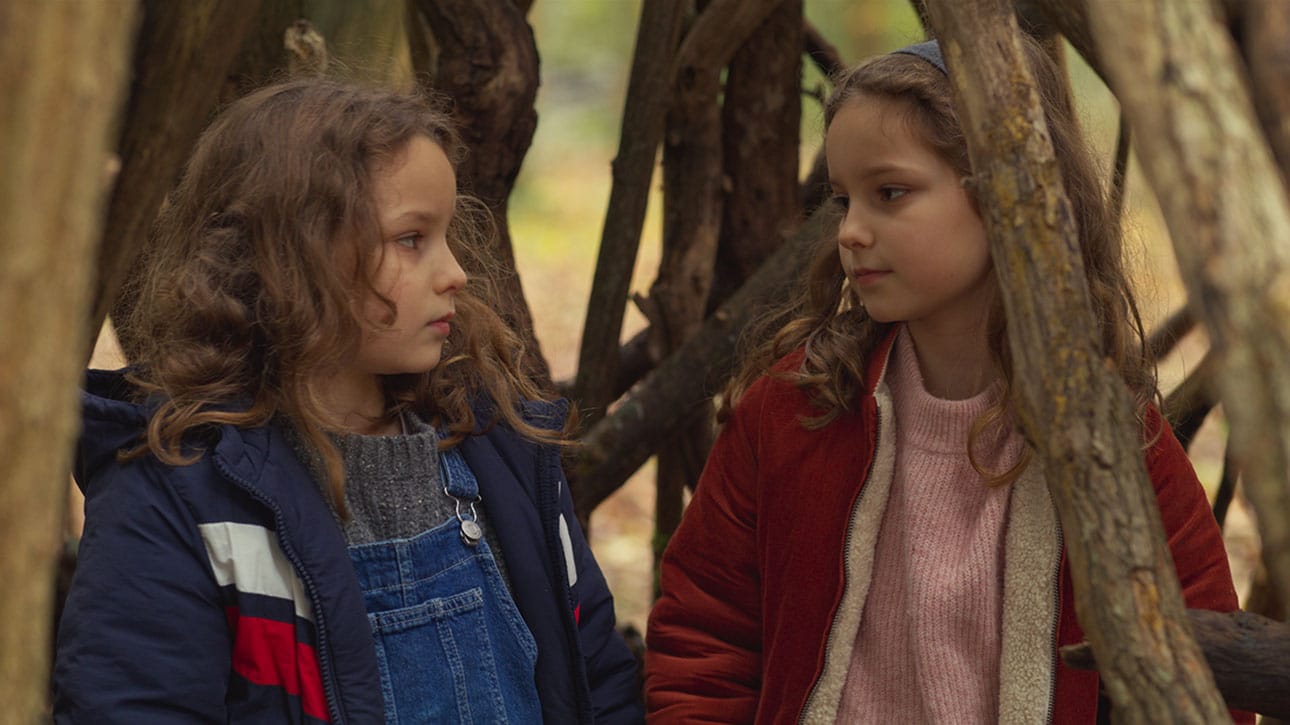
Following the success of Portrait of a Lady on Fire, Céline Sciamma returns with something significantly smaller in scale but no less impactful. Petite Maman is only 72 minutes long, but those 72 minutes tell a remarkable story about healing from loss and finding your purpose. The fairytale-inspired narrative moves quickly, but every minute serves a purpose.
After losing her grandmother, Nelly accompanies her parents to visit her mother’s childhood home. Once she arrives, she meets a young girl named Marion playing in the woods. The two quickly hit it off and, after visiting Marion’s house, Nelly learns that Marion is a younger version of her mother. Nelly spends the rest of the runtime bonding with her not-so-new friend, and in doing so, she comes to terms with the trauma that has affected her family.
Even if we ignore the runtime, Petite Maman is deceptively simple. The stakes are low compared to just about every other entry on this list, but that doesn’t make it less effective. In spite of the low stakes, Petite Maman sticks with you by wearing its heart on its sleeve. It tells a poignant story that should resonate with anybody who has experienced loss. It may not tell a story with a massive sense of urgency, but it doesn’t have to.
6. Licorice Pizza

There’s something alluring about Paul Thomas Anderson’s dreamlike coming-of-age comedy. This could be attributed to a number of reasons, but at the end of the day, Licorice Pizza largely works because it is so organic. By eschewing all coming-of-age clichés, we are left with something that could only come from the mind of PTA.
When you really boil it down, Licorice Pizza is a series of vignettes about two people who are young and naive. These people, played by newcomers Cooper Hoffman and Alana Haim, find ways to grow up together in the busy streets of San Fernando Valley circa 1973.
The plot is, admittedly, a tad thin, but that’s because it plays second fiddle to just about everything else. Licorice Pizza isn’t about one specific conflict; it’s about the smaller moments in your life that add up to something greater. We get to see how individual events shape these two characters, and although these events aren’t exactly high-stakes, they’re delightful to watch.
It would be easy to praise the writing and end it there, but this isn’t an open-and-shut case. Licorice Pizza also benefits from two revelatory performances and plenty of attention to detail. Although the loose structure might frustrate folks looking for something strictly conventional, Licorice Pizza nevertheless earns its place on this list thanks to a winning combination of magical movie moments.
5. Titane
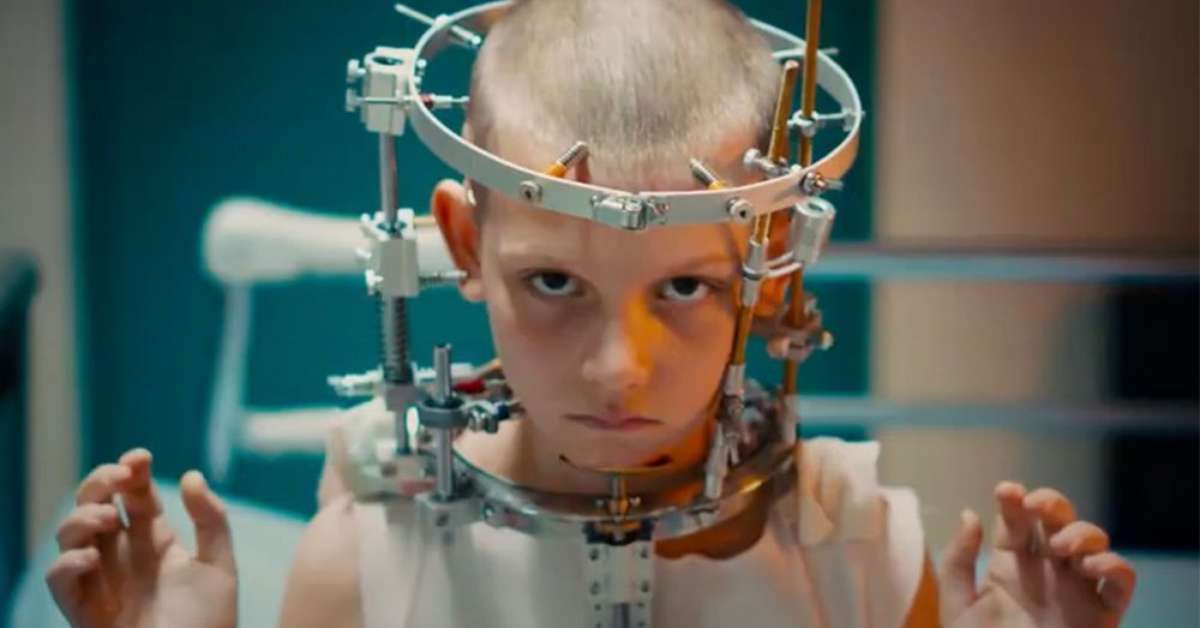
Julia Ducournau’s bizarre body horror flick may have won the Palme d’Or after its world premiere at the Cannes Film Festival, but that doesn’t mean it’s a universally loved movie. Titane has proven to be rather divisive since its release this year, and it’s easy to see why. Can a movie about a serial killer who has sex with cars have artistic merit? Plenty of people won’t take the time to figure out the answer, but trust us when we say there’s more to Titane than you might think.
To be fair, Titane certainly appears to be a trashy grindhouse horror movie. To some extent, it fits that definition. Particularly within the opening half hour, there’s plenty of sex and violence. However, when things get moving, you’ll find that Titane has a much softer side.
Beneath all of the chaos is a touching story about a found family. It might seem hard to sympathize with a character like Alexia, but Ducournau’s screenplay is so elaborate that you end up doing just that. She presents us with a deeply troubled character and then finds a way to make us care about her.
Yes, Titane can easily be defined as a horror film, but just like Raw, it’s not that simple. Ducournau has proven that she is an expert when it comes to defying genre conventions. Titane isn’t concerned with sticking to one category. It is its own singular entity, and it’s incredible.
4. West Side Story
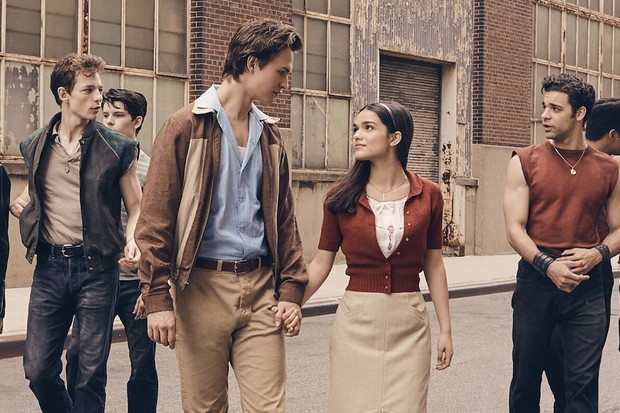
How do you improve upon a cinematic classic? Well, in the case of West Side Story, you put Steven Spielberg in the director’s chair. The storied director had never taken on a musical prior to this, but you’d think this was his forte considering the high quality.
For the most part, this is the same old West Side Story. The story beats remain mostly the same and the songs play out how you remember them. That being said, there’s an additional level of polish here that helps the film stand out. From the striking visual sheen to the precise framing of each and every shot, Spielberg’s filmmaking skills are on full display.
Of course, you could argue that polish isn’t enough to justify a remake’s existence. In the land of remakes, reboots, and reimaginings, movies like 2021’s West Side Story need to do something special. Aside from the strong direction outlined earlier, this new take on the beloved material also makes timely changes to the source material. As stated, the core of the story remains the same, but there are minor changes throughout that allow the film to stand out in 2021.
Then we get to the cast, then we get to the musical numbers, and then we get to the choreography. When you look at everything, it’s obvious that this is not a cash grab. The people involved are passionate about this project; they know that they’re competing with a cherished musical, but they also have the confidence and the skill to pull it off.
If Spielberg decides to throw everything aside and only direct musicals for the rest of his career, it wouldn’t be the end of the world. West Side Story is his best movie in over a decade, and it’s one of the best musicals in a long time.
3. Pig

When the trailer for Pig debuted, people quickly dubbed it a John Wick clone. That makes sense considering the fact that the basic setup is the same. John Wick and Pig both tell the story of an enigmatic man who loses something important. The big difference lies in the execution.
John Wick is a neo-noir action movie that makes use of stylized violence and pitch black comedy. Pig is a much more grounded drama about a loner who wants closure far more than he wants revenge. Those who go into it expecting an action movie akin to the popular Keanu blockbuster will be sorely disappointed. First-time director Michael Sarnoski has far greater ambitions.
Pig is a tragedy about love and loss. It’s about a man who finds something to care about even after he has lived through so much. It’s a poetic, pensive meditation on grief that constantly leaves viewers second-guessing themselves. It never goes in the direction you would expect, and that’s why it stands out.
This is all tied together by Nicolas Cage’s performance. Cage is known for loud, explosive performances, but we don’t get that here. We get to see the actor at his most vulnerable. This change in scenery gives us his best performance in over a decade.
The focus on Cage’s performance in particular has taken some of the attention away from the overall movie. Although Nicolas Cage deserves all of the attention thrown his way, there’s more to it. As previously stated, Pig isn’t just great because Cage is great; Pig is great because it tells a moving story that happens to feature a dazzling performance.
2. Drive My Car
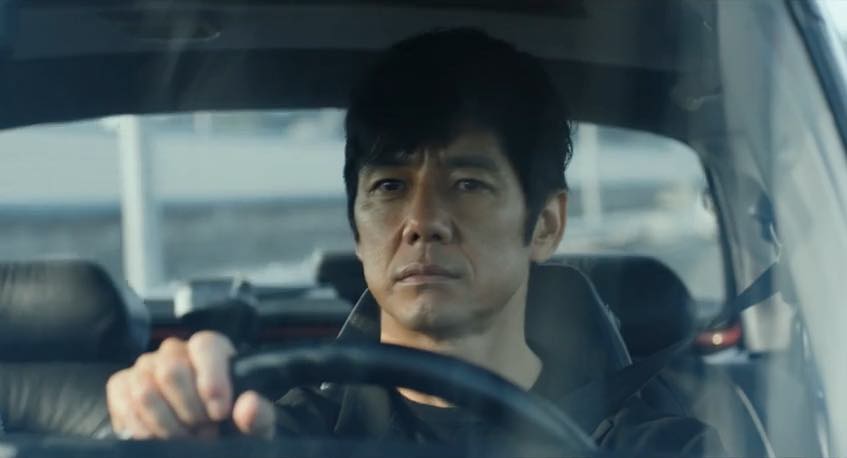
Ryusuke Hamaguchi has slowly been making a name for himself with critical darlings like Happy Hour and Touching the Skin of Eeriness. His previous releases earned outstanding reviews, but they rarely became part of any cinephile discussions. That changed this year after a remarkable one-two punch. Following the success of Drive My Car and Wheel of Fortune and Fantasy, Hamaguchi has become a director to keep an eye on.
While both films deserve a shout-out, most people would agree that Drive My Car has the edge here. Though the three-hour drama is a massive time commitment, it’s far too engrossing to feel like a chore. On the contrary, Drive My Car finds a way to make time meaningless.
Hamaguchi presents us with a protagonist who has to face his future in order to let go of his past. After losing his wife, Kafuku finds comfort in art and theater. He decides to direct an adaptation of Uncle Vanya, a Russian play written by Anton Chekhov. Initially, it appears as though this project will offer him escapism primarily because it offers him a distraction, but we eventually see that this is more than just a distraction.
Uncle Vanya is a means of catharsis; it gives him the motivation to wake up and live his life. Beyond that, it gives him the motivation to open up to the people around him. Throughout the runtime, we get to watch the protagonist deal with loss in a way that’s unique to him. The restrained screenplay presents us with a character who recovers naturally rather than theatrically. This level of authenticity feels refreshing in an era filled with emotionally manipulative melodramas.
The organic nature of the storytelling pairs well with the powerfully understated performances. Each and every cast member manages to hypnotize the audience with acting that appears effortless. In particular, Hidetoshi Nishijima’s portrayal of Kafuku deserves a great deal of praise.
These two aspects appear to be enough, but the more you dig, the more you appreciate. Drive My Car sticks with you. Since it doesn’t beat you over the head, it gives you the opportunity to contemplate, and you’re bound to take advantage of that opportunity.
1. The Power of the Dog
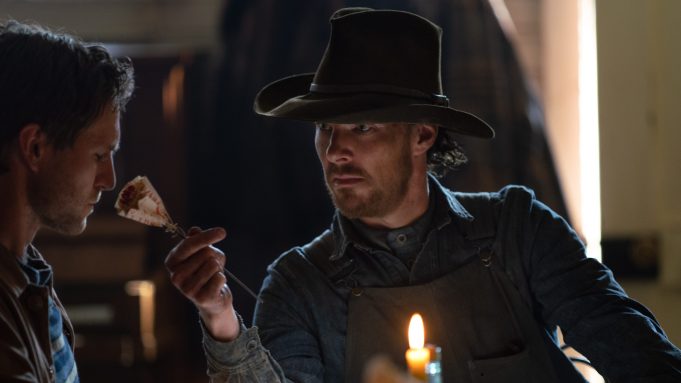
Jane Campion’s last feature film was released all the way back in 2009, but that doesn’t mean the world has forgotten about her. Though her filmography looks quite small compared to a lot of her contemporaries, her influence is hard to ignore. An Angel at My Table, Bright Star, and The Piano have rightfully earned their places among the best of the best, but this year has made it clear that Campion isn’t done yet.
The Power of the Dog is Campion’s best work since The Piano. That’s right, it’s her best work in nearly thirty years. The psychological western film completely shatters conventions at every opportunity. This is not the film you think it is, and it doesn’t want to be either.
Honestly, it’s hard to talk about The Power of the Dog without giving anything away. The most basic synopsis will tell you that it’s about a power-hungry rancher who torments a mother and her child. Generally speaking, this is true, but it’s missing an awful lot of smaller nuances.
Those smaller nuances will remain a mystery for the sake of keeping things spoiler-free. However, it’s worth noting that a majority of the plot tackles complex themes like grief, sexuality, and control. This is not a straightforward western; it’s a movie with layers.
It’s also an intricately crafted piece of work. Setting the plot aside, you’re still left with gorgeous cinematography, top-notch acting, and an evocative musical score. The Power of the Dog might appear to be awards season fodder, but that’s an oversimplification. People are eating it up for a reason; it’s practically flawless.